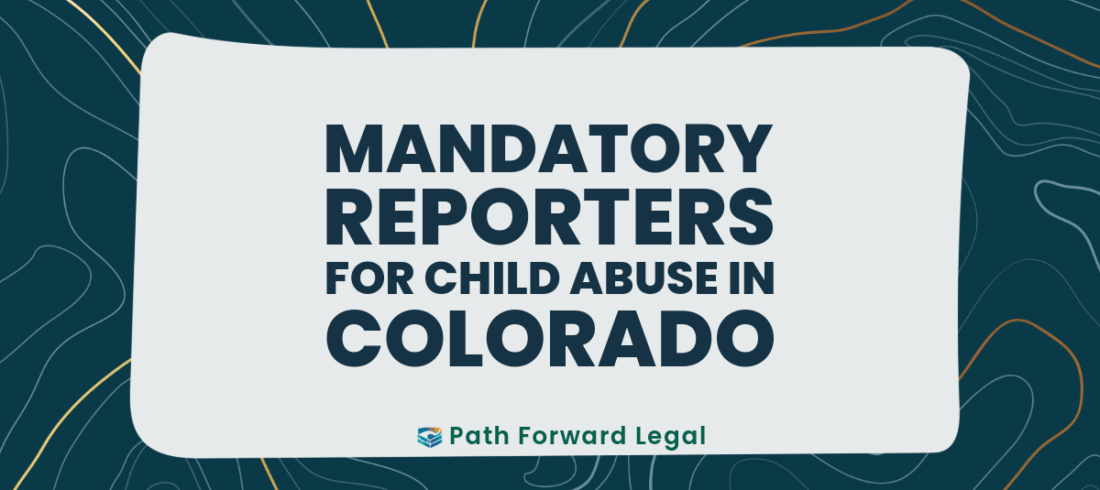Navigating the maze of law and criminal procedure can be complex, especially when it comes to delicate situations like domestic violence. Understanding your rights and the powers that others have in your case can make all the difference in finding the best path forward. We at Path Forward Legal are dedicated to helping you gain clarity and knowledge. This article aims to explore an often-raised question: “Can the victim drop the charges in a domestic violence case in Colorado?”
Understanding Domestic Violence Charges
In the state of Colorado, domestic violence isn’t a separate charge but rather a label applied to an offense when it involves people who are in an intimate relationship. This can encompass a wide range of actions, including physical assault, threats, harassment, or even property damage. For more comprehensive information about domestic violence and its definition, please visit our in-depth Domestic Violence guide: Defending Domestic Violence Accusations – Protect Your Rights and Future.
The process of filing charges often starts when an incident is reported to the police, who then make an arrest based on their findings at the scene. From there, the case is handed over to the prosecutor’s office. It’s crucial to understand that it’s not the victim who officially presses charges in such cases. Instead, it is the responsibility of the state’s prosecutor to make the decision based on the strength of the case and the policy of the District Attorney.
Charges in any criminal case are like a lawsuit between the state (The People of the State of Colorado) and the accused (The defendant). The complaining witness, or victim, is just a witness to the action between the state and the defendant.
Understanding this dynamic is key as we explore the concept of ‘dropping charges’ and the role of the victim in such a process in the following sections. Stay with us as we delve deeper into the intricacies of Colorado’s approach to domestic violence cases.
The Role of the Prosecutor and the Concept of “Dropping Charges”
The idea of ‘dropping charges’ often leads to misunderstandings because it implies that the victim holds the power to halt the proceedings against the accused. However, this isn’t the case in Colorado domestic violence cases, or indeed, most criminal cases. Once the report of an incident is made and charges are filed, the decision to proceed with or terminate the case lies solely with the prosecuting attorney, who represents the government, not the victim.
The prosecutor’s primary responsibility is supposed to be to protect society and uphold “justice.” They will assess the evidence, consider the severity of the crime, and evaluate the impact of the alleged act on the victim and the wider community. It’s the prosecutor’s duty and power to determine whether a case should continue to court or not. This decision isn’t supposed to be taken lightly. In domestic violence cases, the legislature also decides what cases can be dropped and what cannot.
The Victim’s Influence on the Case
While the decision to pursue or drop the case isn’t in the victim’s hands, their wishes and wellbeing are certainly factors that prosecutors are supposed to take into account. In Colorado, like many other states, complaining witnesses have been given rights through legislative action. The Colorado Victims’ Rights Act provides rights to people who accuse others of certain crimes, including domestic violence. The have the right to voice their opinions and be informed about significant developments in the case.
This means that if a victim expresses a desire for charges to be dropped, the prosecutor will listen and may consider it when deciding how to proceed. However, the victim’s desire alone isn’t definitive. The prosecutor will weigh their wishes against the severity of the incident, the evidence, potential risks to the victim, and the potential risks to society.
In some cases, victims may feel pressure to ask for charges to be dropped because of intimidation, manipulation, or fear of reprisal. For this reason, prosecutors are cautious when a victim requests the dropping of charges. They want to ensure that victims are making such a request freely and not under duress, as the safety of the victim is of paramount importance.
Potential Outcomes
There are several potential outcomes when a victim communicates their wish for charges to be dropped. One scenario could be the prosecutor deciding to proceed with the case, despite the victim’s preference. The rationale behind this could be a pattern of abuse, the severity of the incident, evidence suggesting that the accused poses a threat to the victim or the community, or if the prosecutor believes the victim might be under duress.
Alternatively, the prosecutor might decide to continue with the case but pursue an outcome that aligns with the victim’s desire for healing and moving forward. This could involve negotiating a plea agreement that includes counseling or therapy for the accused, especially if this is a first offense and there’s no significant physical harm involved. This is often seen as a solution that protects the victim while also providing an opportunity for the accused to address the underlying issues leading to the incident.
In very limited circumstances, the complaining witness’s wishes to drop the case can lead to a dismissal. However, the law prohibits Colorado prosecutors from dropping a domestic violence case that they can prove at trial. Most cases that result in dismissal are because something the victim said lead the prosecutor to believe that they wouldn’t be a good witness at trial, or that the prosecutor would not be able to prove their case.
How a Defense Attorney Can Help
If you’re an accused party in a domestic violence case, it’s important to know that having a defense attorney can make a significant difference in the outcome of your case. This is true even when the victim has expressed a desire to drop the charges.
Whether you’re dealing with the complexities of protection orders, understanding the potential implications of charges, or navigating through the intricacies of the Colorado legal system, our team at Path Forward Legal is here to help. We strive to provide each client with an understanding, empathetic, and strategic defense. It’s not just about navigating legal waters, but also about providing support and confidence during a challenging time.



